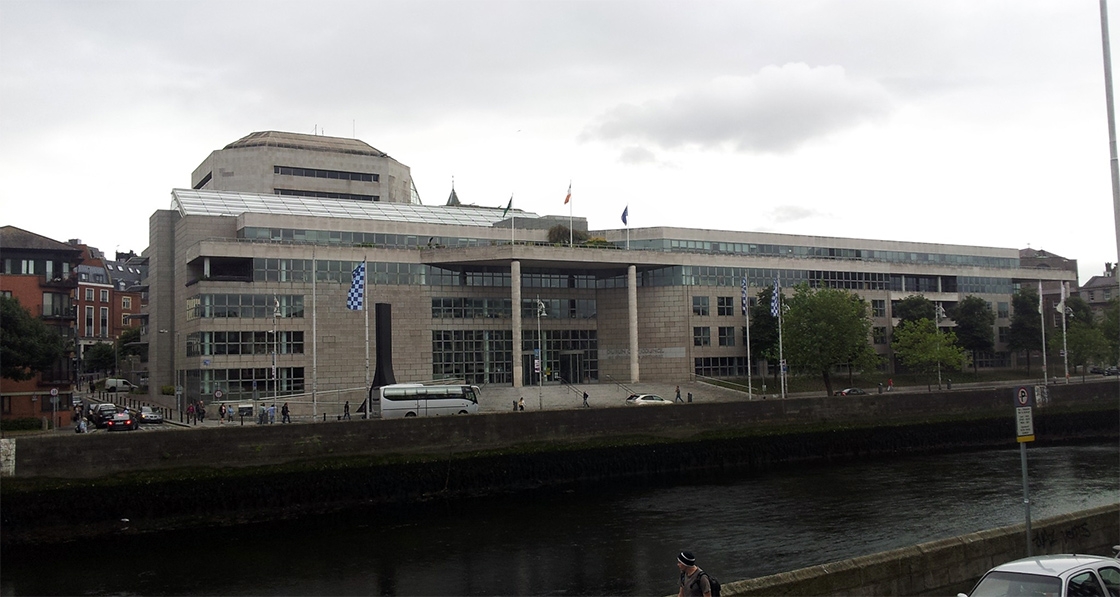
- Planning
- Posted
Dublin City Council officials defy councillors on passive house vote
Unelected officials in Dublin City Council have rejected the decision by city councillors to make the passive house standard or equivalent energy performance standards a mandatory planning condition for all new buildings in the city. The council also included a statement to protect the route of the controversial Eastern Bypass, in spite of councillors voting against it.
The city council published the 2nd draft of its 2016-2022 city development plan today, and omitted the text of policy CCO11, following a recommendation to that effect in the chief executive’s report on the submissions received during the public consultation in response to the first draft. The policy may still be reinstated into the final development plan when the city council votes to adopt the plan in November.
At a special council meeting to discuss the development plan on 30 May, the council’s assistant chief executive Jim Keogan said: "I cannot recommend to you nor can I put in the development plan what is effectively a building regulation. This is not a matter for the planning department to regulate buildings. They are governed by a separate statute."
In spite of Keogan’s argument, the councillors then voted and passed the motion to retain the policy by 35 votes to 4. Dublin City Council’s position is in stark contrast to the council’s previous actions in setting development plans.
In an email sent to Jim Keogan on Sunday 19 June, Green Party councillor Ciarán Cuffe urged the council to reinstate the policy into the draft plan before putting it out on display. “I disagree that the passive house policy is outside of the scope of the development plan and/or out of order,” said Cuffe. “You should include the policy in the draft. It was carried by 35 votes to 4. There are several cases of development plans including requirements of this nature.”
Indeed the council passed a variation to the 2005-2011 city development plan in 2007 – a motion that set a B1 BER target as a planning requirement by 1 July 2008, rising to an A3 by 2009.
Similar policies were introduced in a variation to the Dún Laoghaire-Rathdown county development plan in February 2007, and to local area plans in Fingal and Wicklow in 2005/06 – changes which ultimately led to Part L of the Building Regulations being updated in 2007 & 2011. In 2006, initial concerns by Fingal's law agent were successfully countered by advice from Conor Linehan of William Fry & Colm Mac Eochaidh with regard to whether such policies were supported by the Planning & Development Act.
None of these policies were ever challenged. More recently, Dún Laoghaire-Rathdown passed a ”passive house standard or equivalent” motion into its final county development plan in February this year. The then environment minister chose not to use powers afforded to him under Section 31 of the Planning & Development Act to attempt to stop it, though he had twice threatened to do so during public consultations. Planning law expert Philip Lee provided a legal opinion to counter the various concerns raised by the minister, with regard to vires, competition law, and other concerns raised in the minister’s submission.
The chief executive's report on the 1st draft of Fingal's forthcoming county development plan includes a proposal – by the chief executive – to set higher energy performance requirements for all new buildings. The development plan is on display till 19 July. Click here to view the amended draft plan.







